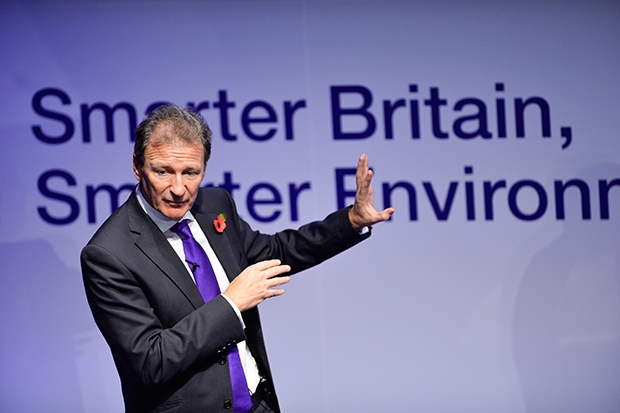
Ahead of the Paris climate conference, there is intense focus on the carbon policies of governments around the world. To reduce global warming, we need to find cleaner ways of generating electricity. But we also need to think about how we transmit energy across smarter grids, and how we use the energy we already produce more efficiently.
Measures to secure supply and manage demand are equally important. Both were covered in depth at our ‘Smarter Britain, Smarter Environment‘ event earlier this month. Top speakers – Lord (Gus) O’Donnell, Jonathon Porritt CBE, Sara Bell, Robert Denda and Lord Bourne – considered what was described by Porritt as ‘the biggest challenge humankind has ever faced.’
Household demand makes up around 28 per cent of the energy use in Britain. As a nation, we are using less and less energy in our homes due to greater awareness of energy saving and more efficient appliances.
But there’s still a long way to go. We can save 32 million tonnes of carbon dioxide emissions over the next 25 years by getting people to change their behaviour through smart meters, which will be offered to every home by 2020.
Smart meters show people what they’re using in near real-time – and eight in ten people who have them take steps to reduce their energy use. They are an essential building block of a smarter energy infrastructure for Britain – which will help us manage demand at a national level with time-of-use tariffs, smarter appliances and better integration of micro-generation technologies into the wider grid.
In a new paper written for Smart Energy GB, Professor Dieter Helm says smart meters ‘are part of a profound set of changes in energy markets, which will transform the way electricity is generated, supplied and consumed. They are part of the solution to climate change, and yet few have yet appreciated their likely impacts.’
That’s why the smart meter roll-out is vital for Britain, and such an important part of any plan to curb emissions. Addressing our audience, celebrated environmentalist Jonathon Porritt said the key was to get consumers to become active ‘agents of change’.
‘The smart meter programme is the foundation of energy efficient systems. We get over-excited about the supply (of energy) but demand is critical. I see this as part of the third industrial revolution.’
His focus on technology echoed the remarks of former Cabinet Secretary Gus O’Donnell – co-author of the Global Apollo Programme. The Apollo idea is to boost public investment in R&D for renewables, so that ultimately renewable energy is cheaper than coal.
‘If you make it the inspiration of a generation to solve this problem, then suddenly you get breakthroughs,’ O’Donnell said.

As other speakers confirmed, much wider use of renewable energy requires smarter ways of transmitting electricity (from windy or sunny places) and storing it, so that power is available when needed.
Electricity supply needs to be secure, affordable and clean. This is often referred to as the energy ‘trilemma’. But energy demand can be flexible too, as Sara Bell of Tempus Energy explained, calling for a ‘paradigm shift’ in attitudes.
‘We look at climate change as an economic problem’, she said. ‘It needs an economic solution.’
The challenge, according to Bell, is to shift ‘non-critical’ energy use to times when electricity can be obtained more cheaply – which is only possible with smart meters in the home and smart technology throughout the wider grid. Bell said that the energy debate had been dominated by the ‘bad news story’ of the lights going out. But historically the lights had gone out because of problems with distribution rather than generation.
Linking it all together, of course, is the ‘smart grid’. Robert Denda from Enel – Italy’s largest power company – said there was a growing recognition that smart meters were needed to manage the sophisticated energy systems of the future.
‘The smart grid enables micro-grids, enables smart cities, enables flexibility,’ he said. ‘You need a smarter grid in order to enable renewable integration.’ The ‘electrification of everything’ – all speakers agreed – is the central challenge we need to consider when designing future energy policy.
That’s why we were delighted that Lord Bourne, Energy Minister, underlined the government’s commitment to the smart meter programme. We share his belief that smart meters give people control and convenience – hassle free meter readings, faster switching and easier top ups for those on pre-pay.
But, as Lord Bourne correctly pointed out, smart meters are also a great catalyst for change – and a vital component of any clean energy plan.






Comments